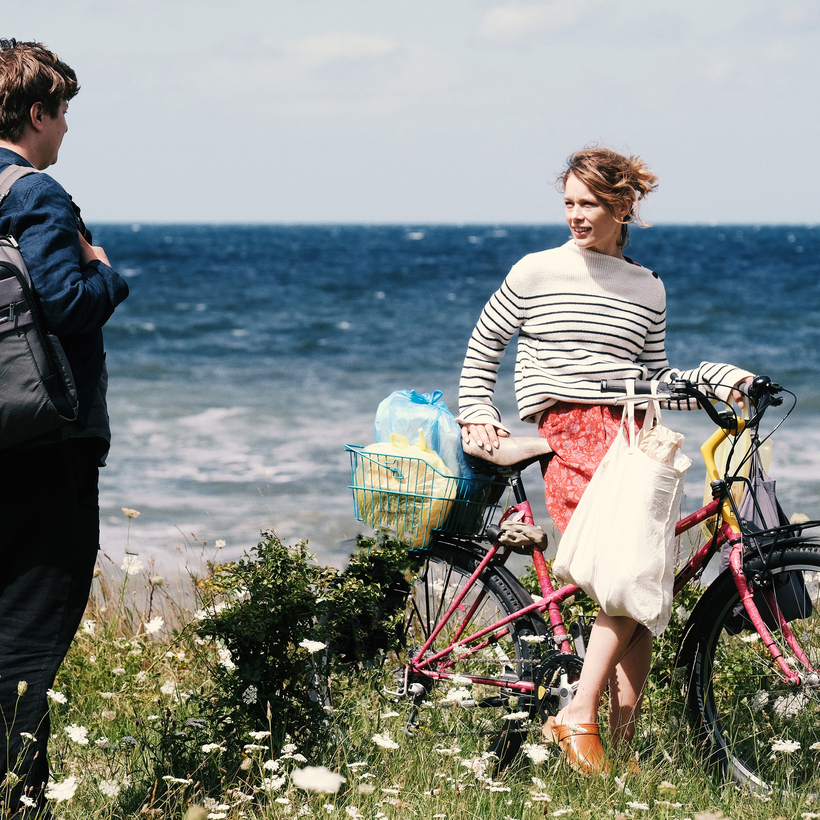Christian Petzold’s latest film, Afire, is that rare beast: a German summer movie. The last one to have made much of a dent on audiences was the Billy Wilder–scripted People on Sunday, which came out way back in 1930. “In People on Sunday you feel there is a possibility of another life,” Petzold, 62, told me in a recent interview. “You can see something which could be possible in Germany if the Fascists hadn’t won and destroyed everything that was important for our culture.”
Petzold began thinking about making his own summer movie when he was laid up in bed with a severe case of the coronavirus. During his illness he re-discovered the films of the French New Wave master Éric Rohmer after his producer gave him a boxed set, including sun-drenched favorites such as La Collectionneuse and Pauline à la Plage. “It was my target to make a summer movie for today,” says Petzold, who wrote a script about a group of friends whose idyllic vacation on the Baltic coast is shattered by an encroaching forest fire.

Afire, which won the Silver Bear Grand Jury Prize at this year’s Berlin Film Festival, stars Thomas Schubert as Leon, a precocious and self-absorbed writer struggling to finish his second novel. The character is one of the most autobiographical that Petzold has created during a stellar career comprising more than a dozen features, including modern-day classics such as Barbara (2012) and Transit (2018). “Leon is from the working class, and I am from the working class, too,” Petzold tells me. “He always has this feeling that he is not in the right place and that he has to work really hard because working-class people don’t have talent.”
Petzold recalls attending the prestigious German Film and Television Academy Berlin (D.F.F.B.) in the 1980s, when “99 percent of all the students came from the upper classes.” At the D.F.F.B., Petzold was one of only a handful of students, including future filmmakers Angela Schanelec and Thomas Arslan, to attend a series of seminars given by the film theorist Helmut Färber. “Not many of the students wanted to watch some guy talking about film history,” Petzold says. “But Färber taught us that we had to make movies that in 20 or 30 years would show people how we had lived, loved, how we had kissed, and how we had betrayed.”
“You can see something which could be possible in Germany if the Fascists hadn’t won and destroyed everything that was important for our culture.”
For Afire, Petzold wanted to take a diametrically different approach to disaster movies such as The Towering Inferno. “With those sorts of movies you have very, very boring characters at the beginning, and then something happens like a big fire which makes them become interesting,” he says. “I wanted to make it the other way round by showing interesting people and see what happens when a catastrophe comes to them.” Petzold’s modernity, which remains the most striking aspect of his filmmaking, is also reflected in the secularity of the characters he depicts.
“I am interested in people who don’t believe in God from the beginning and what happens to them when there is a catastrophe,” he says. “They are not the same as people who think that God is punishing them.”
Afire is in selected theaters now
Tobias Grey is a Gloucestershire, U.K.–based writer and critic, focused on art, film, and books

